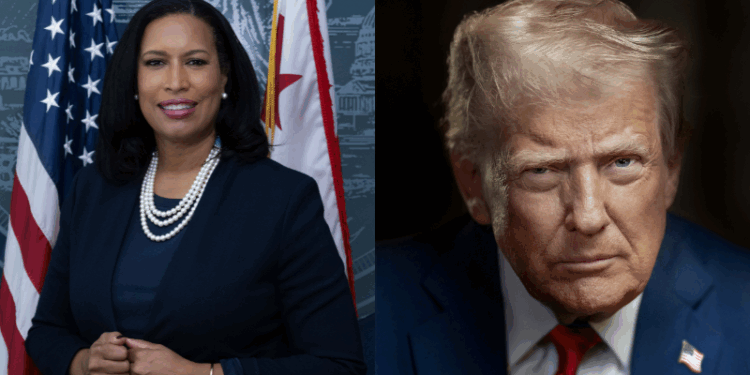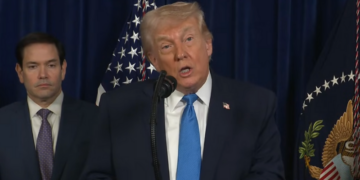President Donald Trump warned Monday, September 15th, that he could declare a national emergency to federalize Washington, D.C.’s police if city officials refuse to cooperate with federal immigration enforcement. The warning follows a 30-day federal takeover of the Metropolitan Police Department (MPD), during which National Guard units and federal agencies patrolled the capital in what Trump called a successful anti-crime operation.
On his Truth Social account, Trump said Mayor Muriel Bowser told the federal government the MPD would no longer assist ICE with removing “dangerous illegal aliens,” warning he could federalize the police if necessary. He also claimed crime had nearly disappeared under federal oversight.
Mayor Bowser rejected Trump’s claim, saying, “Immigration enforcement is not what the MPD does. And with the end of the emergency, it won’t be what MPD does in the future.” She recently issued an executive order establishing an emergency operations center to coordinate with federal agencies, excluding ICE.
Trump said the August intervention turned Washington, D.C., “from one of the most dangerous and murder-ridden cities in the U.S.A. to one of the safest” in a few weeks. An Associated Press review found about 40% of the more than 2,300 arrests during the takeover were immigration-related. Bowser noted violent crime was already at a 30-year low before the federal operation.
The White House has not provided details on how a new emergency declaration would operate. A spokesperson said Trump believes federal action is needed to prevent crime from rising. Local leaders warned that using immigration enforcement to federalize the police could set a dangerous precedent and undermine Washington’s home rule authority.
Last month, Congress rejected an administration request to extend the takeover beyond 30 days, despite Republican control of both chambers. Analysts noted the president invoked a rarely used clause of the Home Rule Act. Whether a second declaration would survive legal challenges is unclear, as civil liberties groups argue immigration enforcement does not meet the legal threshold for such a move.










